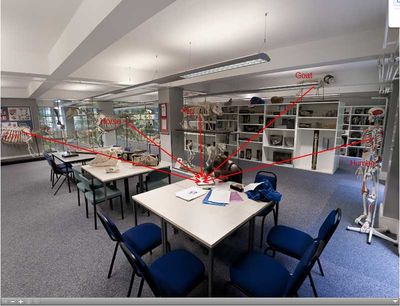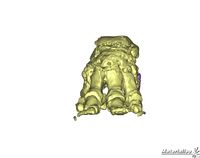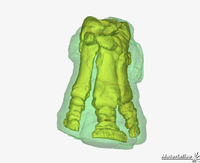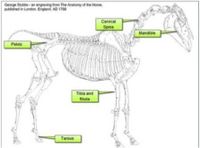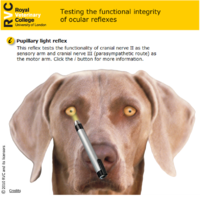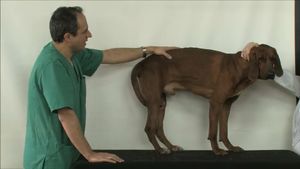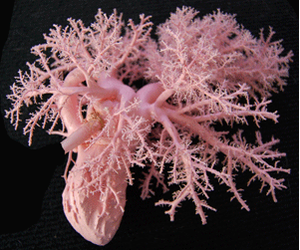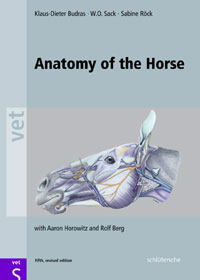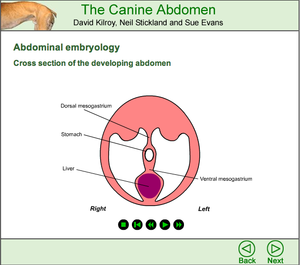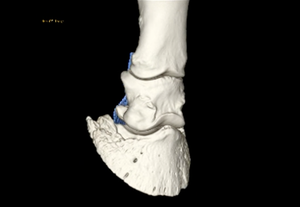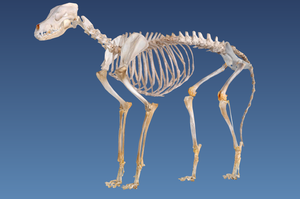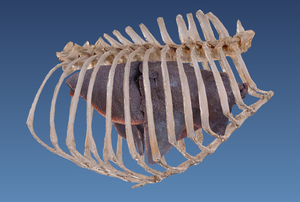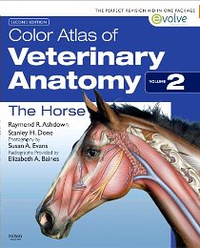Difference between revisions of "OVAM"
Ggaitskell (talk | contribs) |
|||
| (27 intermediate revisions by 4 users not shown) | |||
| Line 1: | Line 1: | ||
| − | {{#tag:imagemap| | + | The Online Veterinary Anatomy Museum (OVAM) will provide access to a comprehensive and pedagogically structured set of veterinary anatomical resources from UK veterinary schools and other institutions. These will be aggregated and ordered in an environment which will make them easily discoverable by different cohorts of learners. Key to the success of this project will be the development of effective methodologies to embed and integrate these materials within a traditional curriculum to maximise exposure, uptake and sustainability. |
| − | rect | + | |
| − | rect | + | {{Video only |
| − | rect | + | |Name=Anatomy Museum |
| − | rect 120 | + | |Url= http://media.bloomsburymediacloud.org/media/rvc-anatomy-museum-tour |
| − | rect | + | }} |
| + | <br> | ||
| + | [[File:Museum1.jpeg|400px|centre|The RVC Anatomy Museum]] | ||
| + | ==Partners== | ||
| + | __NOTOC__ | ||
| + | |||
| + | <!---------------------------RVC------------------------> | ||
| + | {|width="100%" style="margin:0px 0px 0px 0px; background:none;" | ||
| + | |class="MainPageBG" style="width:50%; border:1px solid #cedff2; background:#f5fffa; vertical-align:top;" colspan="1"| | ||
| + | {|id="mp-right" width="100%" cellpadding="2" cellspacing="5" style="vertical-align:top; background:#f5faff;" | ||
| + | !<h2 style="margin:0; background:#cef2e0; font-size:120%; font-weight:bold; border:1px solid #a3bfb1; text-align:left; color:#000; padding:0.2em 0.4em;">[[UK_-_Royal_Veterinary_College,_London|RVC]]</h2> | ||
| + | |- | ||
| + | |style="color:#000;"| | ||
| + | |||
| + | {{#tag:imagemap|Image:Gita pes.jpg{{!}}centre{{!}}200px | ||
| + | rect 0 0 900 900 [https://stream2.rvc.ac.uk/wikivet/Museum/gita_pes.mp4] | ||
| + | desc none}} | ||
| + | {{#tag:imagemap|Image:Rhino pes.png{{!}}centre{{!}}200px | ||
| + | rect 0 0 900 900 [https://stream2.rvc.ac.uk/wikivet/Museum/rhino-pes1.mp4] | ||
| + | desc none}} | ||
| + | <br> | ||
| + | 3D imaging of the bones in elephant and rhino by John Hutchinson, used to teach 3D skeletal anatomy. | ||
| + | <br><br> | ||
| + | {{#tag:imagemap|Image:Stubbs dragster.jpg{{!}}centre{{!}}200px | ||
| + | rect 0 0 900 900 [http://www.rvc.ac.uk/Review/Dragster/index.html] | ||
| + | desc none}} | ||
| + | <br> | ||
| + | Interactive drag and drop activity based on Stubbs work from 1766. Accurate and detailed drawings based on dissection showing the full anatomy of the horse used to create interactive exercises for revision and learning. | ||
| + | <br><br> | ||
| + | {{#tag:imagemap|File:Impact decimate.jpg{{!}}centre{{!}}200px | ||
| + | rect 0 0 900 900 [https://stream2.rvc.ac.uk/wikivet/Museum/impact_decimate12.mp4] | ||
| + | desc none}} | ||
| + | <br> | ||
| + | {{#tag:imagemap|File:Equine locomotion snapshot.png{{!}}centre{{!}}200px | ||
| + | rect 0 0 900 900 [https://stream2.rvc.ac.uk/wikivet/Museum/trial41.mp4] | ||
| + | desc none}} | ||
| + | <br> | ||
| + | Equine locomotion by Renate Weller. Showing a horse trotting in slow motion focusing on the lower leg and the movement of joints through realtime radiography. | ||
| + | <br><br> | ||
| + | {{#tag:imagemap|File:OcularReflexes.png{{!}}centre{{!}}200px | ||
| + | rect 0 0 900 900 [http://www.rvc.ac.uk/Review/ocular_reflexes/] | ||
| + | desc none}} | ||
| + | <br> | ||
| + | Interactive resource testing the functional integrity of the ocular reflex on a virtual patient in the form of a Flash animation. An example of a resource which helps to integrate anatomy teaching with the clinical years. Recently awarded first prize at JORUM, a national award for the best OER. | ||
| + | |} | ||
| + | <br><br> | ||
| + | <!----------------------------------University of Murcia-------------------------------> | ||
| + | |class="MainPageBG" style="width:50%; border:1px solid #cedff2; background:#f5faff; vertical-align:top;" colspan="1"| | ||
| + | {|id="mp-right" width="100%" cellpadding="2" cellspacing="5" style="vertical-align:top; background:#f5faff;" | ||
| + | !<h2 style="margin:0; background:#cedff2; font-size:120%; font-weight:bold; border:1px solid #a3b0bf; text-align:left; color:#000; padding:0.2em 0.4em;">[[Spain - Universidad de Murcia Facultad de Veterinaria]]</h2> | ||
| + | |- | ||
| + | |style="color:#000;"| | ||
| + | |||
| + | {{#tag:imagemap|Image:Abdomen video.jpg{{!}}centre{{!}}300px | ||
| + | rect 0 0 900 900 [http://www.um.es/anatvet/ingles/anatomy-videos.php] | ||
| + | desc none}} | ||
| + | <br> | ||
| + | Topographical anatomy videos by Octavio Lopez Albors. Visual learning aids showing the surface relationships and landmarks of the anatomy of the dog. | ||
| + | <br><br> | ||
| + | {{#tag:imagemap|File:Plastination screenshot.png{{!}}centre{{!}}300px | ||
| + | rect 0 0 900 900 [http://www.um.es/museoveterinario/ingles/plastinated.php] | ||
| + | desc none}} | ||
| + | <br> | ||
| + | Plastination of anatomy specimens. Preservation of dissection specimens using colored plastination techniques to show the routes of vasculature and nerves. | ||
| + | |} | ||
| + | |} | ||
| + | |||
| + | <!----------------------------------Manson Publishing-------------------------------> | ||
| + | {|width="100%" style="margin:0px 0px 0px 0px; background:none;" | ||
| + | |class="MainPageBG" style="width:50%; border:1px solid #cedff2; background:#f5faff; vertical-align:top;" colspan="1"| | ||
| + | {|id="mp-right" width="100%" cellpadding="2" cellspacing="5" style="vertical-align:top; background:#f5faff;" | ||
| + | !<h2 style="margin:0; background:#cedff2; font-size:120%; font-weight:bold; border:1px solid #a3b0bf; text-align:left; color:#000; padding:0.2em 0.4em;">[http://www.mansonpublishing.com/ Manson Publishing]</h2> | ||
| + | |- | ||
| + | |style="color:#000;"| | ||
| + | |||
| + | {{#tag:imagemap|Image:BudrasCover.jpg{{!}}centre{{!}}200px | ||
| + | rect 0 0 900 900 [http://upload.wikivet.net/images/f/fc/Budras_sample.pdf] | ||
| + | desc none}} | ||
| + | A sample chapter from Budras' "Anatomy of the Horse" on the equine thoracic limb. Detailed information of all aspects of the anatomy of the equine limb, including skeletal, muscular, vascular and articular aspects, including descriptions and detailed diagrammatic drawings. | ||
| + | |||
| + | |} | ||
| + | <!----------------------------------University College Dublin-------------------------------> | ||
| + | |class="MainPageBG" style="width:50%; border:1px solid #cef2e0; background:#f5fffa; vertical-align:top; color:#000;"| | ||
| + | {|width="100%" cellpadding="2" cellspacing="5" style="vertical-align:top; background:#f5fffa;" | ||
| + | !<h2 id="mp-tfa-h2" style="margin:0; background:#cef2e0; font-size:120%; font-weight:bold; border:1px solid #a3bfb1; text-align:left; color:#000; padding:0.2em 0.4em;">[[Ireland - University College Dublin Faculty of Veterinary Medicine|University College Dublin]]</h2> | ||
| + | |- | ||
| + | |style="color:#000;"| | ||
| + | {{#tag:imagemap|File:Canine Abdomen Still.png{{!}}centre{{!}}300px | ||
| + | rect 0 0 900 900 [http://www.rvc.ac.uk/review/abdomen/HTML/index.htm] | ||
desc none}} | desc none}} | ||
| + | <br> | ||
| + | A sample from the Canine Abdomen by David Kilroy, Neil Stickland and Sue Evans of an introduction to abdominal embryology. Animations of the formation of the canine abdomen in cross section and accompanied by detailed descriptions. | ||
| + | |} | ||
| + | |} | ||
| + | <!---------------------------Morpho Imaging - MOVE-IM------------------------> | ||
| + | {|width="100%" style="margin:0px 0px 0px 0px; background:none;" | ||
| + | |class="MainPageBG" style="width:50%; border:1px solid #cef2e0; background:#f5fffa; vertical-align:top; color:#000;"| | ||
| + | {|width="100%" cellpadding="2" cellspacing="5" style="vertical-align:top; background:#f5fffa;" | ||
| + | !<h2 id="mp-tfa-h2" style="margin:0; background:#cef2e0; font-size:120%; font-weight:bold; border:1px solid #a3bfb1; text-align:left; color:#000; padding:0.2em 0.4em;">Morpho Imaging - MOVE-IM</h2> | ||
| + | |- | ||
| + | |style="color:#000;"| | ||
| + | {{#tag:imagemap|File:MOVE IM .png{{!}}centre{{!}}300px | ||
| + | rect 0 0 900 900 [http://media.bloomsburymediacloud.org/media/morpho-imaging-equine-foot] | ||
| + | desc none}} | ||
| + | <br> | ||
| + | 3D interactive multi-dimensional imaging of the equine foot by Dr Prisca Noble. Showing the bones, joint and position of tendons and other structures and pathologies of interest. Its objective is to teach a practical approach to veterinary anatomy that must be adapted by the clinician at work. | ||
| + | ''' | ||
| + | |} | ||
| + | <!----------------------------------University of Bristol-------------------------------> | ||
| + | |class="MainPageBG" style="width:50%; border:1px solid #cedff2; background:#f5faff; vertical-align:top;" colspan="1"| | ||
| + | {|id="mp-right" width="100%" cellpadding="2" cellspacing="5" style="vertical-align:top; background:#f5faff;" | ||
| + | !<h2 style="margin:0; background:#cedff2; font-size:120%; font-weight:bold; border:1px solid #a3b0bf; text-align:left; color:#000; padding:0.2em 0.4em;">[[UK - Bristol Veterinary School, Bristol|University of Bristol]]</h2> | ||
| + | |- | ||
| + | |style="color:#000;"| | ||
| + | {{#tag:imagemap|File:BristolCanineSkeleton.png{{!}}centre{{!}}300px | ||
| + | rect 0 0 900 900 [http://www.real3Danatomy.com/bones/dog-skeleton-3d.html] | ||
| + | desc none}} | ||
| + | The canine skeleton in Real 3D Anatomy using anatomical models to aid e-learning, created using high quality detailed photographs, resulting in photorealistic 3D models. The presentations include hotspots, links and overlays. | ||
<br><br><br> | <br><br><br> | ||
| − | + | {{#tag:imagemap|File:DogThoracicOrgans.png{{!}}centre{{!}}300px | |
| − | + | rect 0 0 900 900 [http://www.real3Danatomy.com/thorax/dog-heart-lungs-ribs-3d.html] | |
| + | desc none}} | ||
| + | Canine thoracic organs in Real 3D Anatomy, showing the heart, lungs and ribs and allowing detailed and accurate visualisation of organs "in-situ", a valuable learning tool for anatomy students and clinical students studying approaches for surgical techniques. | ||
| + | ''' | ||
| − | |||
| + | |} | ||
| + | |} | ||
| + | <!----------------------------------Elsevier-------------------------------> | ||
| + | {|width="100%" style="margin:0px 0px 0px 0px; background:none;" | ||
| + | |class="MainPageBG" style="width:50%; border:1px solid #cedff2; background:#f5faff; vertical-align:top;" colspan="1"| | ||
| + | {|id="mp-right" width="100%" cellpadding="2" cellspacing="5" style="vertical-align:top; background:#f5faff;" | ||
| + | !<h2 style="margin:0; background:#cedff2; font-size:120%; font-weight:bold; border:1px solid #a3b0bf; text-align:left; color:#000; padding:0.2em 0.4em;">[http://www.elsevier.com/wps/find/homepage.cws_home# Elsevier]</h2> | ||
| + | |- | ||
| + | |style="color:#000;"| | ||
| + | |||
| + | {{#tag:imagemap|Image:Ashdown Cover.png{{!}}centre{{!}}200px | ||
| + | rect 0 0 900 900 [http://upload.wikivet.net/images/1/15/Ashdown_Drag_and_Drop_Samples.pdf] | ||
| + | desc none}} | ||
| + | Sample drag and drop exercises from Ashdowns' Color Atlas of Veterinary Anatomy: The Horse. Labels have to be dragged to the correct position on photographs, anatomical diagrams and radiographs. A useful tool for revision and reinforcement of learning. | ||
| + | |||
| + | |} | ||
| + | <!----------------------------------University of Nottingham-------------------------------> | ||
| + | |class="MainPageBG" style="width:50%; border:1px solid #cef2e0; background:#f5fffa; vertical-align:top; color:#000;"| | ||
| + | {|width="100%" cellpadding="2" cellspacing="5" style="vertical-align:top; background:#f5fffa;" | ||
| + | !<h2 id="mp-tfa-h2" style="margin:0; background:#cef2e0; font-size:120%; font-weight:bold; border:1px solid #a3bfb1; text-align:left; color:#000; padding:0.2em 0.4em;">[[UK - School of Veterinary Medicine and Science, Nottingham|University of Nottingham]]</h2> | ||
| + | |- | ||
| + | |style="color:#000;"| | ||
| − | < | + | <br> |
| + | |} | ||
| + | |} | ||
| + | <br> | ||
| + | [[File:Rcvs trust logo.png|left|200px]][[File:Medev logo.jpg|right|250px]] | ||
| − | |||
[[Category:WikiVet Projects]] | [[Category:WikiVet Projects]] | ||
Revision as of 18:00, 21 September 2011
The Online Veterinary Anatomy Museum (OVAM) will provide access to a comprehensive and pedagogically structured set of veterinary anatomical resources from UK veterinary schools and other institutions. These will be aggregated and ordered in an environment which will make them easily discoverable by different cohorts of learners. Key to the success of this project will be the development of effective methodologies to embed and integrate these materials within a traditional curriculum to maximise exposure, uptake and sustainability.
|
|||||||||||||||||||||||||||||
